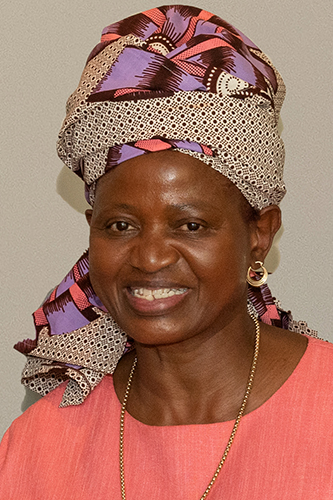
A holistic approach that includes all sectors of society is needed to turn the tide on the high teen pregnancy rate in South Africa, the Portfolio Committee on Basic Education has unanimously agreed. Rajaa Azzakani reports.
According to statistics presented to the committee by the Department of Basic Education (DBE), teen pregnancies in girls aged between 10 and 19 years old have been on the increase since the start of the Covid-19 pandemic.
The DBE briefed the committee on its programmes to address this matter. It informed the committee that girl learners tend to fall pregnant after they have dropped out of school, rather than dropping out of school because they are pregnant. The committee further heard that approximately 33% of girls who do not return to school after falling pregnant are likely to experience multiple pregnancies.
Committee Chairperson Ms Bongiwe Mbinqo-Gigaba said this is an emotional matter that needs to be addressed by society at large. “We need a holistic approach. This matter is broader than just the DBE.” Deputy Minister of Basic Education, Dr Reginah Mhaule, agreed and said this is especially true as girls do not get pregnant at schools, but in the communities from which they come.
The committee heard the impact of Covid-19 on gender-based violence and teen pregnancies in South Africa spiked at 37% within in the first week of the total lockdown. The DBE said femicide in South Africa is also five times the global rate. The DBE said children are often victims/witnesses of domestic violence, which worsened during the Covid-19 lockdown. School closures and containment measures resulted in a loss of education and social protections, especially for adolescent girls. This resulted in significant increases in teen pregnancy, sexual exploitation, sexual violence and forced/early marriages in sub-Saharan Africa.
The committee heard that 30% of teenage girls in South Africa fall pregnant and more than 65% of these are unplanned pregnancies. According to the statistics for rates of delivery in medical facilities in all provinces, the Northern Cape between April 2020 and March 2021 had the highest number of teen pregnancies (19.3%), followed by the Eastern Cape with 17.1%, KwaZulu-Natal 16.5% and Mpumalanga 15.5%. Gauteng recorded the lowest rate for teen pregnancies with 8.9%. These are recorded pregnancies of girls between 10 and 19 years old.
Several committee members wanted statistics about the perpetrators of rape. Some indicated that families are at times complicit in the rape, when they accept money or gifts in exchange for keeping quiet about the rape. Committee Member Ms Desire van der Walt complained about police dockets disappearing many times.
Another committee Member, Ms Marie Sukers, said the emphasis is always on girl children, but programmes are required to put the focus on boys, as they also have a joint responsibility in this regard.
Regarding comprehensive sexuality education (CSE) as taught by DBE in schools, the committee heard that this differs from sex education, which speaks about the how of sex. CSE is a curriculum-based process of teaching and learning about the cognitive, emotional, physical and social aspects of sexuality. CSE is offered in formal settings, is scientifically accurate, culturally relevant, is based on human rights approach, and is age and developmentally-appropriate.
The DBE said CSE does not compromise the innocence of the child, addresses the whole person, psychological, emotional, mental and physiological aspects of the human being and it includes morals, life skills and values. The DBE denied that CSE leads to early sexual initiation and said instead it leads to later and more responsible sexual behaviour.
Ms Sukers took issue with the CSE curriculum and said the state cannot usurp the rights of parents by including this in schooling and ignoring how parents wants their children to be educated in terms of sexuality and sex.
Ms Mbinqo-Gigaba said all members of the committee raised concerns about the prevalence of teen pregnancies. She said in many cases background and culture do not permit families to discuss sexuality education in the home. “In some instances kids down even see their parents sober, let alone have a conversation with them. Conversations regarding teen pregnancies and sexuality education are important if we want to turn the tide and save our children, especially the girl children, as they tend to carry the consequences should they fall pregnant. It is not just the responsibility of DBE, but all of society needs to tackle this matter.”

